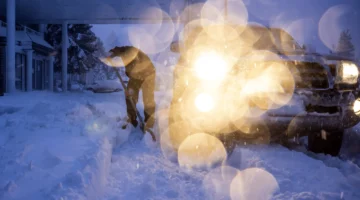Sorokin Gives Inside View On Russia
By Mark Howell
Vladimir Sorokin, 58, lives in Moscow and is the author of many novels, some of which — “The Day of the Oprichnik” and “The Ice Trilogy” — have been translated into English and won prizes in the West.
With his long-flowing hair and his radical past, Sorokin remains one of the most popular writers in Russia today and continues to write articles critical of its leader, Vladimir Putin, formerly of the KGB.
His most recent screed on current affairs in Russia has appeared in the New York Times Review under the title, “Let the Past Collapse on Time.” It offers essential insights to an understanding of what is really going on in Russia, the Crimea and Ukraine.
Here are a few of Sorokin’s views that explain how the Soviet Union did not, in fact, cease to exist despite its formal dissolution on Dec. 26, 1991.
“The Soviet Union may have collapsed geographically and economically in 1991, but ideologically it survives in the hearts of millions of Homo Sovieticus. In 1991, Yeltsin’s revolution ended up being ‘velvet:’ it did not bury the Soviet past and it did not pass judgment on its crimes, as was the case in Germany after World War II.
“All those Party functionaries who became instant ‘democrats’ simply shoved the Soviet corpse into a corner and covered it with sawdust. ‘It will rot on its own,’ they said.
“The Soviet mentality turned out to be tenacious; it adapted to the wild capitalism of the 1990s and began to mutate in the post-Soviet state. That tenacity is what preserved a pyramidal system of power that goes back as far as Ivan the Terrible and was strengthened by Stalin.
“Yeltsin, who was tired after climbing to the top of the pyramid, left the structure completely undisturbed, but brought an heir along with him: Putin, who immediately informed the population that he viewed the collapse of the USSR as a geopolitical catastrophe. The machine of the Russian state moved backward into the past, becoming more and more Soviet every year.
“With a vertical, monarchial structure such as this, the country automatically becomes hostage to the psychosomatic quirks of its leader. All of his fears, passions, weaknesses and complexes become state policy. If he becomes paranoid, the whole country fear enemies and spies; if he has insomnia, all the ministries must work at night; if he’s a drunk, everyone should booze it up.
“Unpredictability has always been Russia’s calling card but since the Ukrainian events it has grown to unprecedented levels; no one knows what will happen in a month, in a week or the day after tomorrow. I think even Putin doesn’t know; he is now hostage to his own strategy of playing bad guy to the West.
“The trump card in Putin’s first decade was stability, which he used to drive opposition underground. Now he’s playing the capricious, unpredictable Queen of Spades. This card will beat any ace.”
Here are Sorokin’s closing, Titanic-based and pancreatic metaphors: “The huge iceberg Russia, frozen by the Putin regime, cracked after the events in Crimea: It has split from the European and sailed off into the unknown. No one knows what will happen to the country now, into which seas or swamps it will drift.
“My intuition is that when Russia seized Crimea from Ukraine, it bit off more than it will be able to chew.
“And for that matter, its stomach doesn’t work as it once did.
The island of Key West has not experienced a direct hit by a hurricane since 1919, with winds exceeding 130 miles an hour on landfall.
According to the New York Times, the lowliest model I-phone can hold the equivalent amount of information printed on 12 full pick-up trucks of paper.
Quote for the Week:
“Every atom in your body came from a star that exploded.”
— Lawrence Krauss, director of the Origins Project at Arizona State University and the foundation professor of the School of Earth and Space.
[livemarket market_name="KONK Life LiveMarket" limit=3 category=“” show_signup=0 show_more=0]




So glad you’re back! Thank you for Sorokin’s inside skinny on Putin. I hope he will continue to speak truth to power in his homeland as ours marches toward it’s own hybrid of pathocratic totalitarianism.